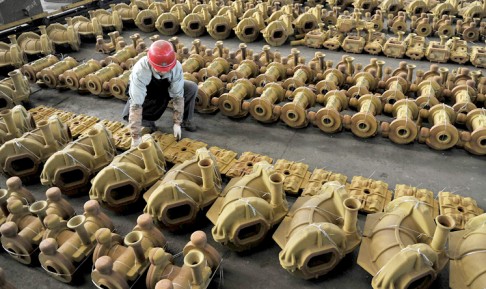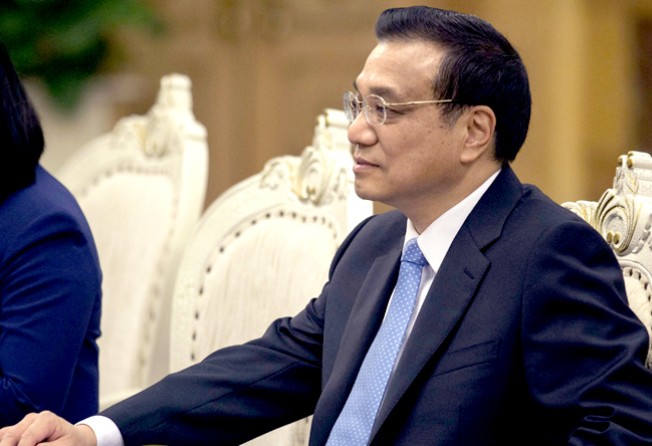
China to push ahead with fiscal reforms as it sets economic growth at 7.5pc

Premier Li Keqiang today signaled that China will push ahead with key fiscal and financial reforms that should eventually allow the country to cut its dependence on the fixed asset investment that currently drives economic growth and has inflated a damaging property market bubble.
In his first government working report to the National People’s Congress, Li outlined the key economic growth targets for the year and pledged to further overhaul the exchange rate, interest rate, and fiscal system.
He also said more private capital would be injected into state-owned enterprise sectors.

Most economic targets remained unchaged, with the economy predicted to grow 7.5 per cent, highlighting that China's priority remains to ensure stability.
No further steps were taken toward tightening the property market, although Li warned that real estate prices in some cities had been rising too fast.
The government plans to maintain the GDP growth target at “about 7.5 per cent”, after some economists predicted that a lower target might be put in place to underscore a decisive shift in the growth model toward slower, yet greener and more sustainable development over the next decade.
The world's second-biggest economy managed 7.7 per cent growth last year - level with the figure for 2012, which was the lowest since 1999.
“There are many positive factors for fulfilling this year’s target for economic growth, but to reach it, we must make arduous efforts,” said Li in his report.
By setting the GDP target unchanged, Beijing aims to boost market confidence and promote economic restructuring, while “more importantly” ensuring employment, he explained.
The inflation target was also unchanged at 3.5 per cent for this year, which will pave the way for the government’s planned further liberalisation of energy and resources prices.
“Based on top leaders’ recent speeches, the ‘appropriate zone’ (growth floor plus inflation cap) policy framework initiated by Premier Li Keqiang in July 2013 will most likely be continued this year,” said Bank of America Merrill Lynch economist Lu Ting.
However, he said the government might tolerate a “slightly lower growth floor” this year. China's government said last year it would ensure the GDP growth would not slip below the annual target of 7.5 per cent.
Li pledged that the yuan’s daily float range will be widened this year, confirming wide speculations in the market on the change after recent sharp yuan depreciation directed by the People’s Bank of China by setting weaker daily fixing rates consecutively.
In addition, the Premier said Beijing will continue to liberalise interest rates by granting financial institutions more power to set their interest rates, and “steadily promote” the establishment of small and medium-sized banks by private capital.
A mechanism allowing local governments to issue debt directly will be established, while reforms on the taxation will be deepened, he said.
The fiscal deficit is planned at 1.35 trillion yuan this year, up from 1.2 trillion yuan budgeted for 2013. However, the share of the deficit in GDP remained little changed at 2.1 per cent.
Despite the reforms pledged, Li said investment would continue to bolster the national economy for now.
“We will take investment as the key to maintaining stable economic growth,” he said.
The National Development and Reform Commission said in its working report that it was targeting national fixed asset investment (FAI) growth at 17.5 per cent in 2014, a tad slower than the 18.0 per cent target set for 2013.
But China’s actual FAI growth has routinely exceeded the official targets for several years. Last year, the actual fixed asset investment growth was at 19.3 per cent.
The government lowered the growth target for imports and exports combined to around 7.5 per cent this year, after trade expanded 7.6 per cent in 2013, below the official target of 8 per cent last year.
The government said it will also carry out trials of investing state capital in corporate operations as part of the reform on the state-owned enterprise sector, introduce more private capitals into areas controlled by SOEs, such as financial, oil, power, railway, telecom, resources, and utility, Li said in his working report.